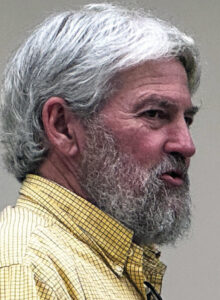Too often, evasion is the first reaction
By Staff
April 7, 2002
The reporter assigned to write a story about Partridge's reimbursement to the city hit the wall almost immediately. Partridge declined to answer most questions and, by the end of the day, reporter Fredie Carmichael found himself in the mayor's office.
We didn't think the story was a really big deal, not unless it was symptomatic of a larger "blind spot" in the fire chief's use of city resources and that has not been demonstrated.
But, getting the runaround sets off alarms at a newspaper. Why, we wondered, can't Partridge answer questions about what was, as these things go, a fairly minor misdeed? Why not, since you know it's being discussed in the community, do something really crazy like defuse the entire situation by issuing a press release about it?
While public officials are fond of saying that the media blows things out of proportion, it is often their response to enquiries that polarizes the interaction. When we get "no comments," the antenna go up. No response to repeated phone messages has the same effect, as do being passed up the line and answers that begin, "On the advice of counsel…"
What's wrong with being straightforward?
Several possible answers come to mind. One, cautious lawyers. Two, public opinion. Three, mistrust of the media. Four, a basic inclination to "spin" the truth.
Our question remains: What's wrong with the truth?








